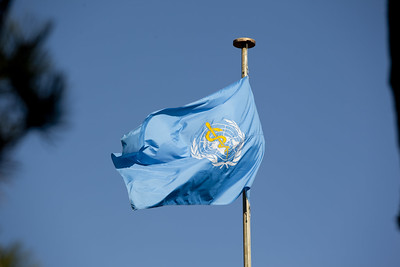In May 2025, the WHO member states adopted the Pandemic Agreement, but they left the work to establish an instrument for Pathogen Access and Benefit Sharing (PABS) for a later date. For that purpose, an Intergovernmental Working Group (IGWG) was established, and countries now find themselves back at the negotiating table in Geneva.
The IGWG is tasked with drafting and negotiating a new instrument on PABS. The IGWG’s mandate is to create a comprehensive, legally binding framework that ensures equitable access to pathogens with pandemic potential and the benefits derived from them.
This PABS Instrument will be an annex to the WHO Pandemic Agreement, and its finalisation is a critical next step because without it, the Pandemic Agreement cannot be ratified and enter into force.
Pathogen Access (PA) refers to the rapid sharing of “materials and sequence information on pathogens with pandemic potential”. This information is crucial for prevention strategies and the development of products needed to respond to a pandemic threat, such as vaccines and medicines. However, the sharing of such information is also associated with adverse events for the country that does so. For example, in 2021, South African scientists shared genomic information about a new COVID-19 variant, which 72 hours later was named Omicron. But within a day, South Africa was confronted with travel restrictions from various countries. Highlighting the tension between prioritising global public health and the economic risks of doing so without guarantees of access to products developed through the rapid sharing of pathogen information.
The objective of the PABS instrument is two-fold: to commit to the rapid sharing of pathogen information and to ensure that those who share information on new pathogens, which is used for the development of new knowledge and products, have access to the benefits derived from their information. Countries agreed in May 2025 that the PABS instrument should ensure “rapid, timely, fair and equitable sharing of benefits arising from the sharing and/or utilization of PABS Materials and Sequence Information for public health purposes”.
The purpose of the rapid sharing of pathogen information is to facilitate research and the development of pandemic countermeasures. For that purpose, since 2015, the WHO has also developed the R&D Blueprint for Epidemics, including a scientific framework for epidemic and pandemic research preparedness that includes pathogens prioritisation.
The first meeting of the IGWG was held 9-10 July and mainly covered procedural issues related to the work of the IGWG. The second meeting of the IGWG will take place from 15 – 19 September 2025 and is expected to go into substantive details. The WHO has provided a 2-page draft outline of elements to be addressed by the PABS system.
The PABS Instrument
The PABS Instrument is meant to provide a global system for sharing pathogens and the benefits that arise from their use. WHO member states decided to create the PABS system when they adopted the Pandemic Agreement in May 2025. Article 12 of the Agreement sets the parameters of the instrument:
1. Rapid Pathogen Sharing: States commit to rapidly sharing biological materials (pathogens) and their genetic sequence information with the WHO and designated laboratories upon identification of a potential pandemic threat. This ensures that scientists and companies have the necessary samples for research, surveillance, and the development of countermeasures.
2. Equitable Benefit Sharing: In return for sharing pathogens, countries are guaranteed access to the benefits, including vaccines, therapeutics and diagnostics derived from the sharing and/or use of materials and monetary and non-monetary contributions. Benefits are multifaceted and, in addition to access to products, include:
- Capacity building and technical assistance
- Research and Development cooperation
- Facilitating rapid access to vaccines, therapeutics and diagnostics to respond to public health risks.
- Granting of non-exclusive licenses to manufacturers in developing countries for the effective production and delivery of vaccines, therapeutics and diagnostics
- Technology Transfer: the sharing of know-how and manufacturing capabilities.
The proposal for the PABS instrument needs to be finalised before the World Health Assembly in May 2026. This may feel like a lifetime to those of us longing for spring break, but in the treaty-making universe, 8 months is a very short time, particularly because the talks will cover thorny issues related to access to health products, intellectual property licensing, and technology transfer. Themes that regularly held up progress during the Pandemic Agreement negotiations.
To prepare for IGWG-2, the Bureau has requested WHO member states to submit text proposals, which will serve as the basis for the negotiations. So far, the WHO has received 18 submissions from countries and country groupings.
Proposals foreshadow where the sticky points will be in the talks. Some of those will be reminiscent of the more difficult themes of the Pandemic Agreement talks. For example, the Group of Equity, bringing together 29 developing nations, proposes:
“(iii) in the event of a PHEIC and/or a pandemic emergency, to grant WHO non-exclusive licenses that can be sublicensed to manufacturers in developing countries, especially to those thatprovided PABS Materials and PABS Sequence Information, for the development and/or production of pandemic-related products needed in developing countries, to expand supply rapidly, ensuring prompt equitable access in developing countries. Such a license to include provision of the full regulatory dossier, technical know-how, and any necessary materials (e.g. cell-lines etc.).”
High-income countries have insisted during the Pandemic Agreement talks that such licensing of technology would only be done on a voluntary basis. This demand is likely to come back in the PABS discussions.
PABS talks would have benefited from clear provisions in the Pandemic Agreement on IP licensing, access to know-how, and technology transfer. In the absence of firm commitments to share technology without IP barriers, the issue will likely rear its head again at the IGWG talks.
Ellen ‘t Hoen, LLM PhD, is a lawyer and public health advocate with over 30 years of experience working on pharmaceutical and intellectual property policies.
